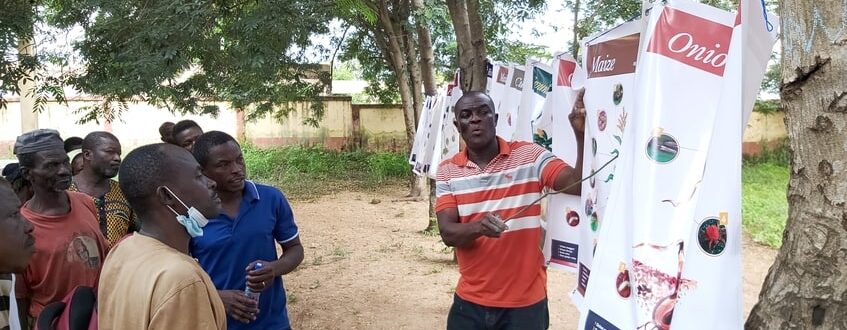Summary: As a consortium implemented by 26 institutions, URBANE is addressing this challenge of sustainable agriculture for food nutrition security, applying a One Health approach for tackling issues related to the application & intensification of peri-urban agriculture, as well as providing the necessary framework for its sustainable & safe application in different contexts. To achieve
Follow Us
+233209134932
info@cbcr-ug.org
Mon - Fri 8.00 - 17.00
Sat & Sun Closed
Enhancing rural livelihoods and food security through wise use of wetlands in northern Ghana project. Food security is inextricably linked with poverty. Thus, poor people are at a greater risk of food insecurity. The World Bank Organization describes poverty in this way “Poverty is hunger. Poverty is lack of shelter. Poverty is being sick and
In 2020, a Concept Note for the preparation of a second volume of the FAO Fisheries and Aquaculture Technical Paper “The Nansen Programme: Investigations of Fishery Resources in Developing Regions, History of the Programme and Review of Results”, prepared by the EAF-Nansen Programme Coordinating Unit, was approved at the Norad/FAO/IMR Annual meeting. The report is
Improving Capacity for Protected Area Management in Ghana The main objective of this project is to enhance the conservation of forest and estuarine ecosystems in Ghana by improving capacity for evidence based PA management and encourage the uptake of systems within and beyond Ghana. The project sites are Shai Hills Resource
CAW- Calgary Zoo collaboration to support Wechaiu Community Hippo Sanctuary CAW is currently in partnership agreement with The Calgary Zoo Foundation (Canada) to support the Wechiau Community Hippo sanctuary (starting November 2019- December 2024). The sanctuary is a CREMA consisting of 20 communities working together to conserve Hippos and their habitat along the Black Volta.
Unblocking the flow of biodiversity data for multi-stakeholder environmental sustainability management Main partner institutions: University of St Gallen; Centre for African Wetlands, University of Ghana; Humboldt Biological Resources Research Institute. Project Summary Governments, businesses and civil society require biodiversity data to facilitate informed decision making on environmental management and conservation. However, biodiversity data are fragmented,






